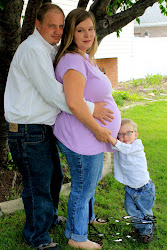A One-Page Dust Description
For my application to the Fullbright Scholarship (which I didn't end up getting), I had to write a one-page curriculum vitae (what makes me tick). The process of summing up "me" into a single page was both frustrating and rewarding. No person fits in a single page--but there IS a lot you can lay down. It's a little "over the top" because I'm trying to nab the scholarship committee's attention--one applicant in a field of thousands. Still, here it is. . . .
Dustin Kunkel, Outdoor Education, United Kingdom (Edinburgh, Scotland).
I grew up on two continents. My identity sinks deep roots into West Africa and the wild Northwest of the United States. I lived with my parents in Ghana, West Africa for the first seventeen years of my life. They were Christian aid workers who worked with both the blind and deaf populations and trained leaders in multiple languages and people groups. My father to this day can speak international sign language, as well as “greet people” in seven or eight African languages.
I grew up speaking Ashanti Twi, the trade language in Ghana, hunting in the bush, and playing football with my Ghanaian friends. We lived in Kumasi, in the midst of a number of outlying immigrant villages. I had friends from the Dagomba tribe, the Dagati tribe, the Frafra tribe, the Mamprusi tribe, the Bimoba tribe--friends from all over the north of Ghana. In Africa, people eat fufu and peanut-soup from a common bowl, and I cannot escape the power of this daily ritual on the plot of my life--I ate from the same bowl with friends from five tribes.
My mother is the greatest influence on my intellectual development; she home-schooled me for much of my childhood. Unlike most “home school moms,” she was an honest-to-goodness college-educated history and literature teacher. Her love for people and their context in time, culture, and history rubbed off on me. To this day, mom can tell you all the salient facts about any person she knows—and the facts become a full-blown oration on the context of their lives! My mother also taught me to “own” my education at a very young age. When I returned to the United States to finish high school, I tested at a university level, and I couldn’t understand why other students didn’t want to learn. I love to learn, and I love to change through that learning. My classroom’s always been the world, not a building.
On my return to the United States I was shocked by the amount of “stuff” in the aisles at supermarkets, and the amazing number of choices at Costco and McDonald’s. Yet it seemed like people here missed out on the richness of life I experienced sitting in a circle of friends around the fufu and peanut-soup.
Because I couldn’t find this in the American culture to any great extent, I went looking for this pace of life and depth of experience in the outdoors—in the mountains and rivers of Montana and Idaho and Oregon. In my escape from American plenty, I stumbled upon my life’s great work and joy. I became an outdoor educator, and a trainer of leaders. The Northwest is full of wildness, and still remains the end of the trail for westward expansion—and it shows. The classrooms were built here only recently, and every window you look out has crags and trees and vistas beckoning you into the wild.
I fly fish with abandon every chance I get, climb the 10,000 foot volcanic peaks of the Cascades, and raft-guide on the wild and scenic Salmon river in Idaho. I’ve led youth expeditions through Glacier National Park, in the Cascades, and on the Salmon River. The outdoors has become a place for me where “real” life can be discovered, where “classroom” disappears and learning becomes who I am, not what I do for an hour a day in a classroom. I’ve found great joy in leading young men and women towards an ownership of their learning through the outdoors. And because I am a leader, I receive even greater joy when I help a young person with leadership potential grow into his or her gifts.
As a “third culture kid” (one who is neither of the “home” culture nor the indigenous culture) I have always felt like a bridge-builder. I am uniquely gifted by my upbringing to sense where people are coming from, no matter what the cultural background. I have a deep desire to see bridges built between cultures. Up to this point in my life, I haven’t matched my African boyhood to my American higher education, but now I’m ready. The first phase of my research (the Masters level) will probably not occur on the continent of Africa, but then again--I’m not trying to duplicate my childhood. Instead, my goal is to embrace my multi-cultural and leadership abilities and meld them with my love for experiential learning and the outdoors.
I’m hoping that my future holds a career that allows me to coach young western leaders into cross-cultural skills, leadership abilities, and an awareness of the depth of relationships that they can have with other tribes and cultures. I don’t believe the long-term solution to our problems is through politics.
It’s at a deeper level the change occurs: the level of walking together, working together, eating together. I believe that people change people, and putting them together in a circle of trust changes their lives, and a little part of their world. I am driven by this dream: to see people of different cultures and continents meeting in places where our heart-hungers intersect. It might even be around the soup-bowl.








